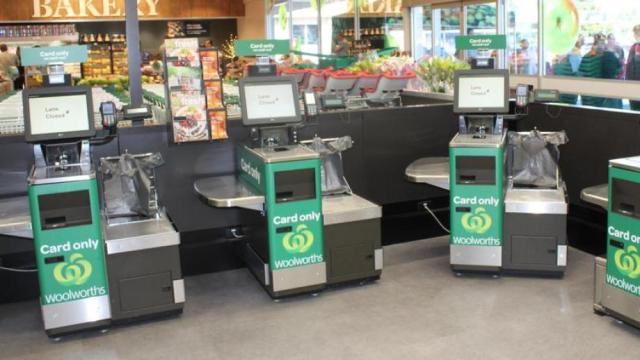
Cost of living pressures behind Dictionary’s Word of the Year
Widespread dissatisfaction with the cost of groceries and an investigation into questionable pricing policies at Australia’s largest supermarkets has led word nerds at The Australian National University (ANU) to pick Colesworth as their Word of the Year for 2024.
Colesworth is a portmanteau – or blended word - used in reference to the perceived duopoly of Australia’s largest supermarket retailers, Coles and Woolworths.
According to Senior Researcher at the National Dictionary Centre, Mark Gwynn, it is used in mostly negative contexts to highlight the power and market share the two businesses hold in Australia.
Each year the Centre selects a word or expression that has gained prominence in the Australian landscape over the past 12 months.
Mr Gwynn said although Colesworth had been around for several years, its usage only recently spiked as ordinary Australians vented their frustration at the increasing prices of food staples and dodgy pricing practices.
“Aussies walk out of the supermarket with less after paying more, but then hear news of massive profits in the supermarket sector. And with official investigations into some of the pricing practices at Australia’s two largest supermarkets, it’s no wonder that ordinary shoppers have become cynical,” Mr Gwynn said.
“The blend of the supermarket names Coles and Woolworths into Colesworth provides a succinct way of referring to both supermarkets while at the same time hinting at the negative aspects of what is perceived as an unfair duopoly.”
The Centre’s Word of the Year shortlist is made up of a mix of words and compounds that say something about the year in Australian society.
The full 2024 shortlist includes:
• breaking: the preferred term for breakdancing among participants and competitors of the acrobatic dance form performed to hip-hop music. Breakdancing’s debut at this year’s Paris Olympics saw Aussie athlete Raygun become a worldwide phenomenon.
• climate trigger: the requirement for a new development, etc. to be assessed under environmental protection legislation if it has an unacceptable impact on climate. This Australian term has come to recent prominence as debate over new laws occurred in Federal parliament, pitting environmental concerns against mining interests.
•ute tax: a derogatory term for the new fuel efficiency standard. Designed to lower CO2 emissions in new cars sold in the Australian market, opposition to the changes have labelled it a tax on the family car.
•YIMBY: a person who supports new development in the area where they live (from ‘yes in my back yard’). This riposte to the NIMBYs has increased in Australian usage recently as the housing crisis prompts calls for more high-density housing in Australian cities.